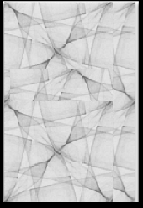18) Caso e concordância em Língua de Sinais Brasileira: Investigando verbos de concordância regular e verbos de concordância reversa
Resumo
Inglês: Case and a greement in Brazilian Sign Language: Examining regular agree ment verbs and backw ard agreement verbsThis paper intends to delineate a syntactic derivation for verbal agreement in Brazilian Sign Language. More specifically, we analyze regular agreement verbs and backward agreement verbs. Following the recentframework of theGenerative Theory concerning this topic (CHOMSKY, 2000, 2001; MYIAGAWA, 2010; WOOLFORD, 2006; BAKER, 2008; BITTNER AND HALE, 1996; and others), we claim that sentences with a regular agreement verb show a nominative agreement pattern, in which the subject bears nominative Case and the object bears accusative Case. On the other hand, sentences with a backward agreement verb show an ergative agreement pattern, in which the subject receives inherent ergative Case and the object bears nominative Case.
Key-words: Brazilian Sign Language; agreement; ergativity.
Tradução: Este artigo tem como objetivo propor uma derivação sintática para a concordância verbal em Língua de Sinais Brasileira. Em especial, analisaremos os verbos com concordância regular e com concordância reversa. Seguindo os desenvolvimentos recentes da Teoria Gerativa concernentes ao assunto (CHOMSKY, 2000,2001; MYIAGAWA, 2010; WOOLFORD, 2006; BAKER, 2008; BITTNER AND HALE, 1996; entre outros), propomos que as sentenças com verbo de concordância regular apresentam um padrão nominativo de concordância, em que o sujeito recebe Caso nominativo e o objeto recebe Caso acusativo. Já as sentenças com verbo de concordância reversa apresentam um padrão ergativo de concordância, em que o sujeito recebe Caso ergativo inerente e o objeto recebe Caso nominativo.
Palavras- chave: Língua Brasileira de Sinais; concordância; ergatividade.
Downloads
Não há dados estatísticos.

